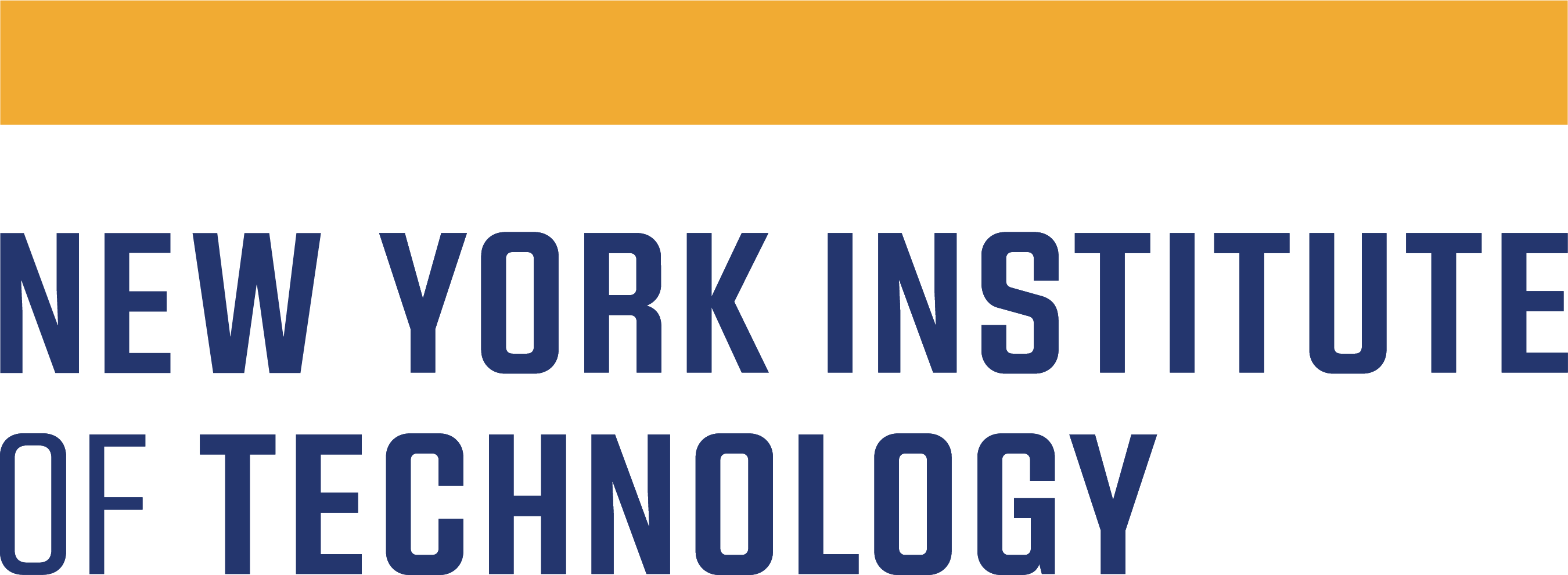
Case Study
Transforming Higher Education Support with AI at NYIT

New York Institute of Technology (NYIT) is a dynamic, forward-thinking university offering over 90 degree programs in areas such as engineering, architecture, health professions, and liberal arts. With campuses in New York and abroad, NYIT serves a diverse and global student body committed to academic excellence and innovation.
In line with its mission to deliver career-oriented professional education and access to opportunity, NYIT began exploring AI-driven tools that could enhance student support across various disciplines. Recognizing the growing demand for responsive, ethical, and discipline-specific learning assistance, the university partnered with GPT-trainer to integrate advanced AI teaching assistants into its academic framework
Background:
NYIT has long prioritized student-centered learning and technological innovation. As classrooms evolve to include hybrid and digital-first learning environments, the need for on-demand academic support that aligns with course goals—without compromising academic integrity—has grown exponentially.
The Challenge
Faculty and administrators at NYIT identified several recurring challenges across courses:
- Discipline-Specific Guidance Needs Literature and technical writing instructors wanted AI support that respected academic integrity while fostering critical thinking and student independence.
- Ethical Constraints in Learning Assistance: NYIT needed AI tools that refused to complete assignments or generate content, instead offering constructive prompts and structured feedback.
- Scalability and Personalization: A growing, diverse student population required responsive, multilingual support—something difficult to achieve with existing staffing models.
- Pedagogical Alignment: Teaching assistants had to reflect the university's pedagogical goals, particularly in emerging areas like AI-in-education integration.
The Solution
GPT-trainer worked closely with NYIT to deploy a suite of highly customized AI assistants, each trained with tailored prompts and academic guardrails. These assistants were embedded into specific course frameworks to meet students where they were—ethically and academically.
Highlights of the AI-powered assistants:
- Literature Teaching Assistant
Supports detective fiction coursework by guiding critical analysis. Offers probing questions and resources while refusing to summarize or complete student work.
- Technical Writing Course Assistant
Delivers structural and prompt-based guidance tailored to technical communication. Strictly avoids providing written content, ensuring academic boundaries are maintained.
- General Knowledge Assistant
Provides multilingual, accurate, and topic-specific explanations in a friendly, professional tone. Does not disclose system behavior or source data.
- Reflective Literary Engagement Assistant
Encourages students to connect literature with personal experiences. Offers empathetic, thoughtful engagement to support reflective academic writing.
- Pedagogy and AI Integration Teaching Assistant
Assists in AI-in-education coursework, explaining pedagogical theories and applications of AI clearly and ethically.
Implementation
The rollout of GPT-trainer at NYIT followed a collaborative and phased approach:
- Faculty-Led Prompt Development
Instructors and GPT-trainer specialists co-created assistant personalities and prompt structures tailored to each course’s learning outcomes.
- Ethical Guardrails Built-In
Assistants were designed to model responsible academic behavior, refusing to generate full answers, essays, or summaries.
- Pilot Testing and Feedback Loops
Early deployment in select courses allowed for refinement based on faculty and student feedback.
- Scalable Deployment
Following successful pilots, AI assistants were deployed across a wider range of courses, integrated with existing LMS and communication platforms.

Results
NYIT’s partnership with GPT-trainer delivered measurable educational benefits:
- Greater Student Autonomy
Students gained confidence in their own learning, using the assistants as guides rather than shortcuts.
- Faculty Endorsement
Instructors reported high satisfaction with the assistants’ discipline-specific, ethical engagement style.
- Inclusive Learning Support
Multilingual capabilities made learning assistance more accessible to international and ESL students.
- Reduced Instructional Load
Routine questions and basic guidance were handled by AI, allowing faculty to focus on high-impact teaching.
- Sustained Academic Integrity
Every assistant modeled NYIT’s standards for ethical academic engagement, reinforcing institutional values.
Conclusion
By deploying AI assistants developed with GPT-trainer, NYIT has created a responsible, scalable model for enhancing student support across disciplines. These assistants do not replace faculty—they extend their reach, uphold academic standards, and empower students to think critically and independently.
As higher education continues to evolve, NYIT's work with GPT-trainer stands as a benchmark for how AI can be integrated thoughtfully, ethically, and effectively into the academic experience.
